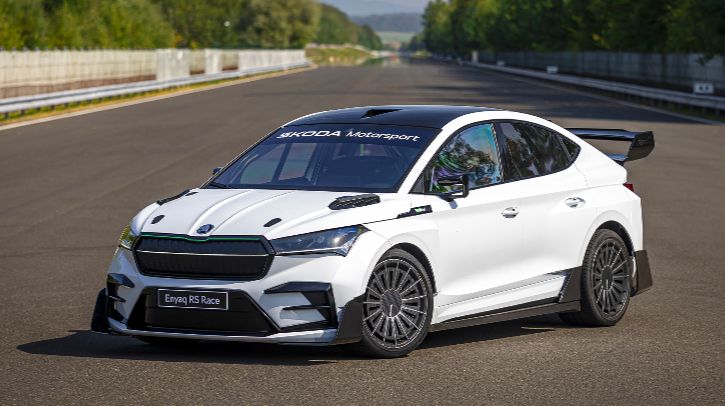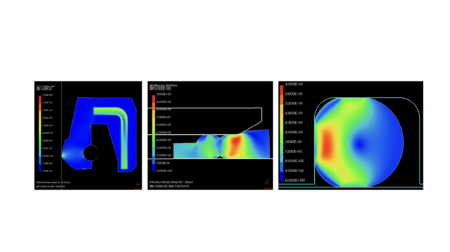Škoda Motorsport has leveraged Bcomp technologies in its 2025 Enyaq RS Race. The material technology has reportedly contributed to a weight cut of 316kg in a pilot project demonstrating sustainable lightweighting.
The all-electric concept car is inspired by Škoda’s rally DNA. It is based on the Škoda Enyaq Coupé RS production model and features a host of upgrades and innovative technology demonstrations.
Sustainable lightweighting
For the 2025 Enyaq RS Race, Škoda Motorsport engineers took advantage of Bcomp’s lightweight, sustainable bio-composites to attain a total weight savings of 316kg versus the production Škoda Enyaq Coupé RS. This was achieved using parts made from Bcomp’s ampliTex and PowerRibs.
Bcomp’s technologies were used for the interior and body of the vehicle. Applications included the bumpers, fenders, roof vent, rear wing, dashboard, door panels, footrests for the driver and passenger and a replacement panel for the standard model’s panoramic glass roof. In total, 16 different vehicle components were replaced with sustainable material alternatives.
Ken Kruck, motorsport sales representative at Bcomp, said, “Our long-standing relationship with Škoda has been incredibly successful and has explored the potential of our sustainable lightweighting technologies in motorsport and extremely innovative concept vehicles. Now, with the Enyaq RS Race, we have demonstrated our ability to move this collaboration beyond the rally stage and onto the road with volume production. Lightweight, sustainable materials will play a critical role in the future of the automotive industry, and we are excited to further explore this potential with Škoda.”
An alternative to carbon fiber
Bcomp’s technologies offer comparable stiffness and weight to carbon fiber while cutting CO2 emissions by approximately 85%. The primary technology used in motorsport and automotive applications is ampliTex, a technical fabric made from renewable flax fibers. These woven fibers help to dampen vibrations and contribute to weight reduction. Composite parts made from ampliTex are often reinforced with PowerRibs, a technology that increases the stiffness of thin-walled shell structures.
Preparing for production
Škoda Motorsport has put bio-composites to the test in challenging conditions in the Rally2 class. The company is also exploring the potential of these technologies in production automotive applications.
Bcomp’s technologies originated in sports equipment and motorsport applications but the company has conclusively demonstrated its capacity for high-volume automotive production in several major projects for international OEMs.
Jakub Jareš, the project manager for the Enyaq RS Race, said, “At Škoda Motorsport, we are always looking to take advantage of new technologies and materials. The cooperation with Bcomp in the field of composites enabled us to achieve significant weight savings while at the same time demonstrating that motorsport can be sustainable. In combination with a fully electric vehicle, this approach makes perfect sense to us. Looking ahead, this material will continue to play an important role in our future projects, and it holds great potential for use in series production, where it could also find valuable applications.”
In related news, high-force, compact 100kN tabletop testing system from Instron targets metals and composites





